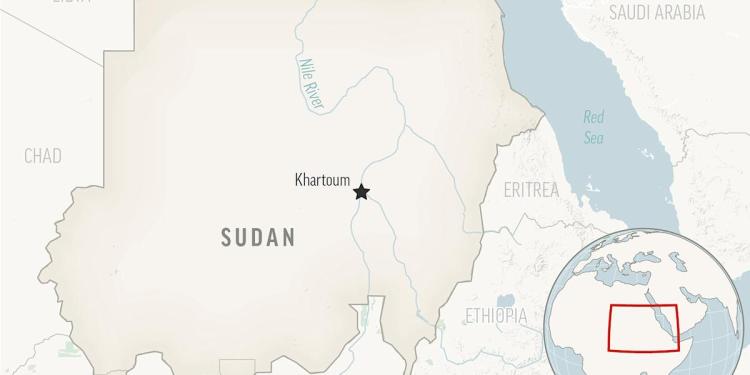The Security Council was informed by a U.N. humanitarian official on Tuesday that essential supplies are ready to be sent to a famine-stricken displacement camp in Sudan. However, the ongoing civil war in the country is preventing these life-saving provisions from reaching those in desperate need.
Edem Wosornu, the operations director for the U.N. Office for the Coordination of Humanitarian Affairs, emphasized the importance of urgent action to prevent further suffering at the Zamzam camp in southern Sudan. According to the report released on Thursday, the camp is facing famine, and the crisis will persist as long as the conflict and limited humanitarian access continue.
With over 500,000 people seeking refuge in the Zamzam camp, the situation is dire. Sudan descended into conflict in April 2023 due to fighting between the military and the Rapid Support Forces, a powerful paramilitary group, in the capital, Khartoum. The conflict has resulted in over 14,000 fatalities, 33,000 injuries, and displacement of more than 10 million people.
Wosornu highlighted that 26 million individuals in Sudan are currently suffering from acute hunger. Since May, the U.N. and its partners have provided food assistance to 2.5 million individuals facing severe hunger. However, the relief supplies waiting to be dispatched to Zamzam, including essential medicines, nutritional supplies, water purification tablets, and soap, are unable to be transported due to restrictions.
Heavy rains have flooded the last cross-border route permitted for aid transport through neighboring eastern Chad, hindering the delivery of crucial supplies. This logistical challenge is further exacerbating the humanitarian crisis in Sudan.
Stephen Omollo, the Assistant Executive Director of the World Food Program, pledged to target individuals in Sudan experiencing emergency levels of hunger for aid distribution. The organization is expanding its operations across the country to combat famine and enhance assistance services.
Despite these efforts, both Wosornu and Omollo urged Security Council members to increase humanitarian funding. The current appeal for Sudan has only received 33% of the required $2.7 billion. The officials stressed the urgent need for more support to address the escalating crisis in the region.
Moreover, the officials urged the Security Council to use the latest report on famine as a wake-up call to prompt Sudan’s warring factions to cease hostilities and secure aid routes. They emphasized the critical role of council members in facilitating access for humanitarian organizations to deliver essential supplies to those in need.
However, the Sudanese U.N. ambassador, Mohamed Ibrahim Elbahi, disputed some of the claims made by the humanitarian officials. He accused the U.N. of overlooking the paramilitary’s involvement in looting aid convoys and suggested that the declaration of famine at Zamzam camp was politically motivated.
Elbahi defended Sudan’s efforts in facilitating aid deliveries, stating that multiple border crossings had been opened, and visas had been granted to aid workers. He criticized the portrayal of Sudan as a hindrance in humanitarian efforts and called for a more balanced narrative regarding the country’s cooperation with international organizations.
In conclusion, the situation in Sudan remains critical, with millions of people facing acute hunger and displacement due to the ongoing conflict. Urgent action is needed to ensure that life-saving supplies reach those in need at the Zamzam camp. The Security Council and international community must come together to address the humanitarian crisis in Sudan and provide the necessary support to alleviate the suffering of the affected populations.
For more trending news articles like this, visit DeFi Daily News.



















